Temporary road closures will be in place around the Gallery from 26 February during the Enlighten Festival.
George Coppin (1819–1906), English comedian, theatre manager, politician and philanthropist, was widely known as the ‘Father of the Australian stage’. The son of itinerant actors and an erstwhile travelling player and musician himself, Coppin arrived in Australia in 1843 having accepting an engagement as a ‘star’ comedian. He quickly made his mark, his ‘infinite variety’ meeting with approval from the play-going public in Sydney, Launceston and Melbourne. Within three years he was flush enough to acquire his own theatre in Adelaide, but by late 1851, having lost his fortune almost as rapidly, he was in Victoria seeking to reclaim it by performing for the hordes of dissolute and newly-rich folk in search of respite or diversion. Through performing on the goldfields, he rebuilt a portfolio of theatres and hotels. His Olympic Theatre, a prefabricated iron building purchased in Manchester and nicknamed ‘The Iron Pot’, was erected on the corner of Lonsdale and Exhibition Streets in Melbourne in 1855, and he added the Theatre Royal on Bourke Street to his portfolio the following year. In 1856 he acquired the Cremorne Pleasure Gardens, an amusement park on the banks of the Yarra at Richmond where patrons might partake of a ‘novel combination of Theatricals, Equestrians, Tumblers, Wax Works, Wild Beasts, Cosmoramas, Swing Boats, Knockumdowns, Aunt Sallys, Gingerbread, Toy and Lollypop Shops, Shows &c.’
In 1858 he was elected to the Victorian Legislative Council, but after five years, in serious debt, he resigned and returned to tread the boards. In 1874 he became a member of the Legislative Assembly; after 1888, he returned to the Council. Victoria's first Freemason Grand Master, he energetically promoted reforms and innovation in the municipal sphere, including copyright legislation, the establishment of Post Office Savings banks, the St John Ambulance Society, the Old Colonists' Association, the Dramatic and Musical Society, and the development of Sorrento as a tourist destination. Coppin’s other business interests included the Astley Amphitheatre (later the Princess Theatre) and four hotels, some of which he managed in partnership with Gustavus Brooke, the noted Shakespearean actor with whom Coppin had worked in Dublin, and whose sister-in-law, Harriet Hilsden, Coppin had married in 1855. (Coppin’s second wife, incidentally, was Harriet’s daughter, Lucy, whom he married two years after her mother’s death, and six months before the birth of their first child).
Collection: National Portrait Gallery
Purchased 2010
George Selth Coppin (age 44 in 1863)



On one level The Companion talks about the most famous and frontline Australians, but on another it tells us about ourselves.
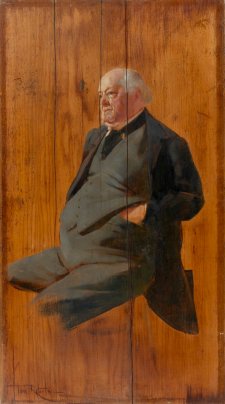
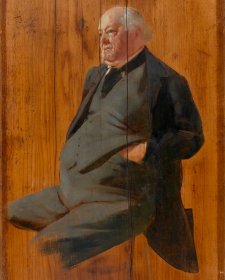
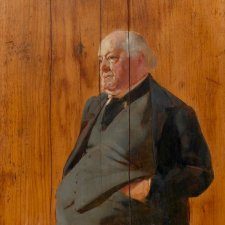
George Selth Coppin (1819-1906) comedian, impresario and entrepreneur, was a driving force of the early Australian theatre.

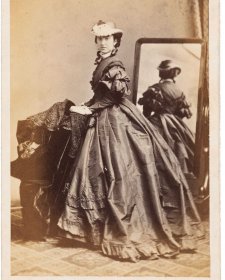
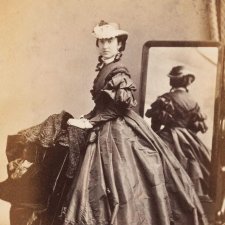
Drawn from the NPG’s burgeoning collection of cartes de visite, Carte-o-mania! celebrates the wit, style and substance of the pocket-sized portraits that were taken and collected like crazy in post-goldrush Australia.